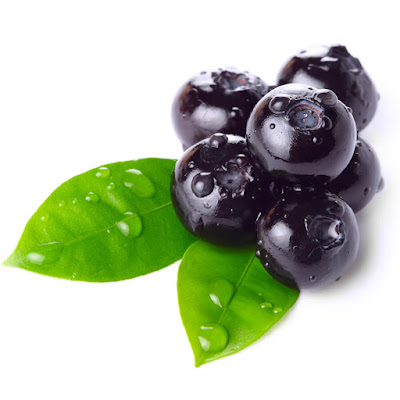Ever since grade school, I 've had very bad vision. As far as I can remember, I wasn't aware at that time that I have blurry vision. I don't know if that was always the case but the only symptom that I can remember that made me go to the doctor were the headaches. Frontal headaches to be exact. I didn't know I have bad vision at that time until the ophthalmologist examined me and said I have 250 visual acuity on both eyes.
So that was bad. Starting with 250 considering my age at that time. I wish I at least started with less than 100 - you know start with those thin, fashionable eyeglasses at least - that silver lining. But no, I didn't! What I got are those thick ones right off the bat.
Now, my vision got from bad to very, very bad -- 650. So I'm always on the lookout on how to improve my vision and how to correct it somehow and not make it worse than it already is.
Aside from my bad eyes, I also have my husband's vitreous hemorrhage to think of. He used to have good eyesight so adjusting to his vision challenges both of us. I'm always on the lookout for food, supplements, or drugs that can help us with our eyesight. At first, I preferred food that I can include in our diet that are high in vitamins. I tried juicing and doing smoothies but that can be expensive and hard to do especially when busy. I have to give time for buying the right food because I can't just buy anything. I have to use the most organic that I can find. So when funds took over as well as time, I have to do the next best thing, supplements. Lately, I find supplements to just be readily available and sometimes comes out even less expensive than buying fresh organic fruits and vegetables.
I did a lot of research before buying any vitamin supplements and everything in here, we have tried. There are some vitamins that can't be produced by the body so you have to either have to include it in your diet or take a supplement. Supplements can either be from plants or animals and you have know which one has better absorption.
- Also known as bog bilberries, wild blueberries, and whortleberries.
- Bilberry extracts may improve visual acuity and ability to adjust to changing light.
- They also increase retinal pigments that allow the eye to tolerate light.
- Contains naturally-producing chemicals known as anthocyanosides. Anthocyanosides are plant pigments that have powerful antioxidant properties. These antioxidants scavenge the body for free radicals, with the intention of helping to prevent or reverse damaged cells.
- The extract contains the highest percentage of anthocyanosides, making it the strongest form of bilberry.
- Studies provide evidence that lutein and zeaxanthin may play a role in preventing macular degeneration
- It is believed that lutein, zeaxanthin and meso-zeaxanthin in the macula block blue light from reaching the underlying structures in the retina, thereby reducing the risk of light-induced oxidative damage that could lead to macular degeneration (AMD).
- Lutein and zeaxanthin protect your eyes from harmful high-energy light waves like ultraviolet rays in sunlight. Studies suggest that a high level of both in eye tissue is linked with better vision, especially in dim light or where glare is a problem.
- Several studies suggest omega-3 fatty acids may help protect adult eyes from macular degeneration and dry eye syndrome. Essential fatty acids also may help proper drainage of intraocular fluid from the eye, decreasing the risk of high eye pressure and glaucoma.
- Experts found that age-related macular problems are rarer in people whose diets are rich in omega-3 fatty acids, which are found in fish, including salmon and mackerel, as well as flax seeds and walnuts.
- Study found that antioxidants in grape seeds protect cells in the retina, which are responsible for your ability to distinguish colors and to see in low-light conditions.
- Oligomeric proanthocyanins in grape seed extract may help prevent or slow the development of macular degeneration, a condition involving loss of the central field of vision.
- Anthocyanins are a group of compounds in the flavonoid family (flavonoids, isoflavones, etc.) and are what give foods like grapes, red cabbage and berries a blue, red or purple hue. They are thought to be powerful antioxidants that help damaged cells repair themselves.
- Beta-carotene converts to vitamin A.
- Vitamin A, at least when in combination with other antioxidant vitamins, also appears to play a role in decreasing the risk of vision loss from macular degeneration (AMD).
- Vitamin A helps protect the surface of the eye (cornea) essential for good vision.
AVOCADOES
This fruit is packed with lots of vitamins and one of the most nutritious food given to man. Very good source of vitamin E.
OYSTERS
Oysters are the highest source of zinc.
TIP!
Research say the greener they are, the better. Same goes for yellow, orange and red vegetables.
Whatever we do, vision will degenerate as we age. The only thing we can do about it is to delay it somehow. I can't do anything with my computer use because it is part of my job and the reading because I love it, so I'll try my best to have an intake of these foods to help improve my vision.
If you know any alternative to these, feel free to share! Happy eyes lovin'!




No comments:
Post a Comment